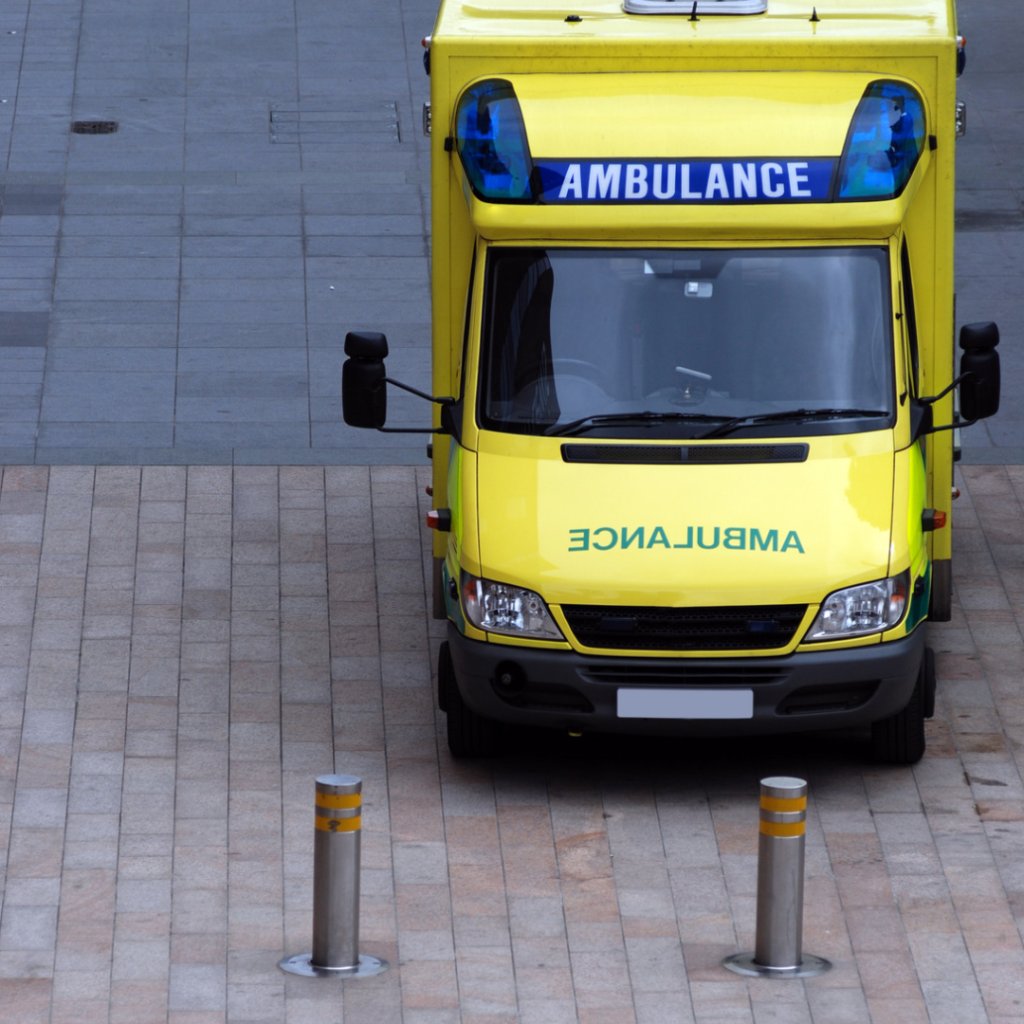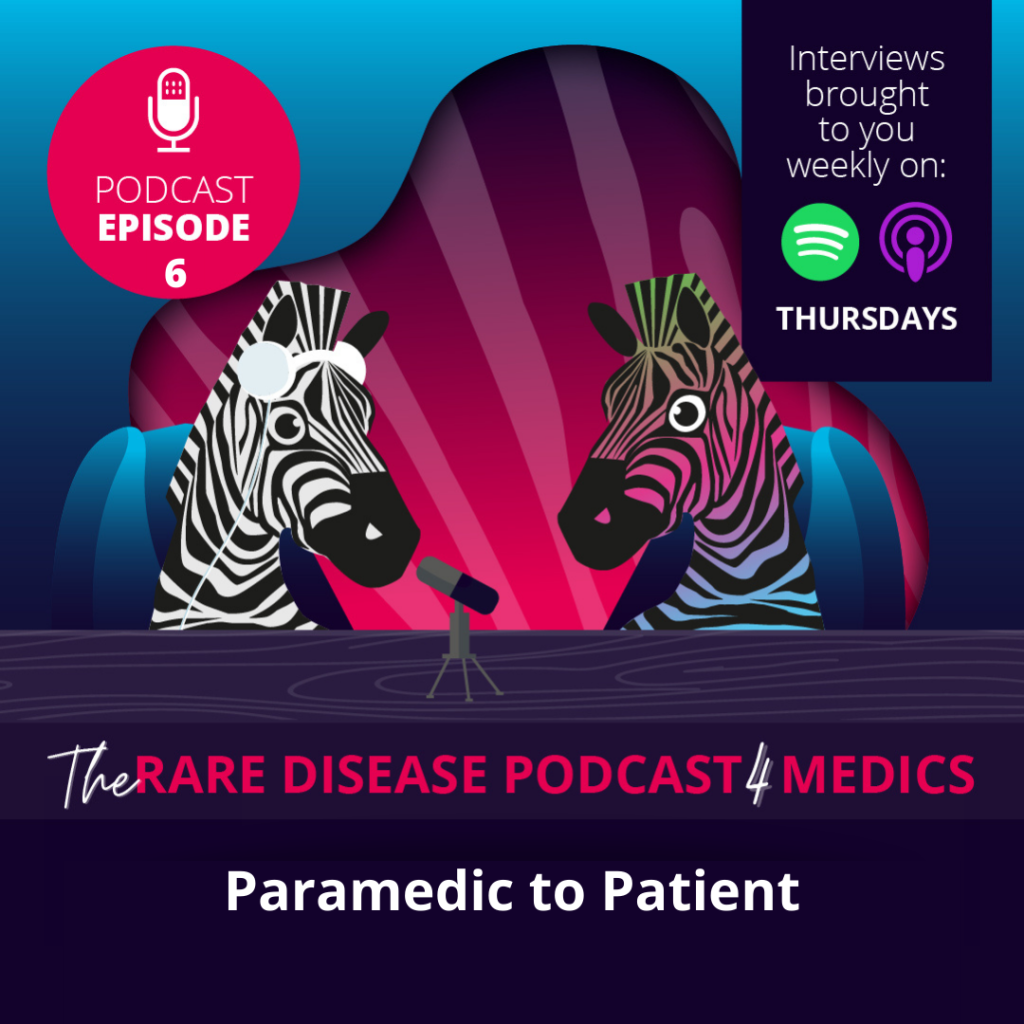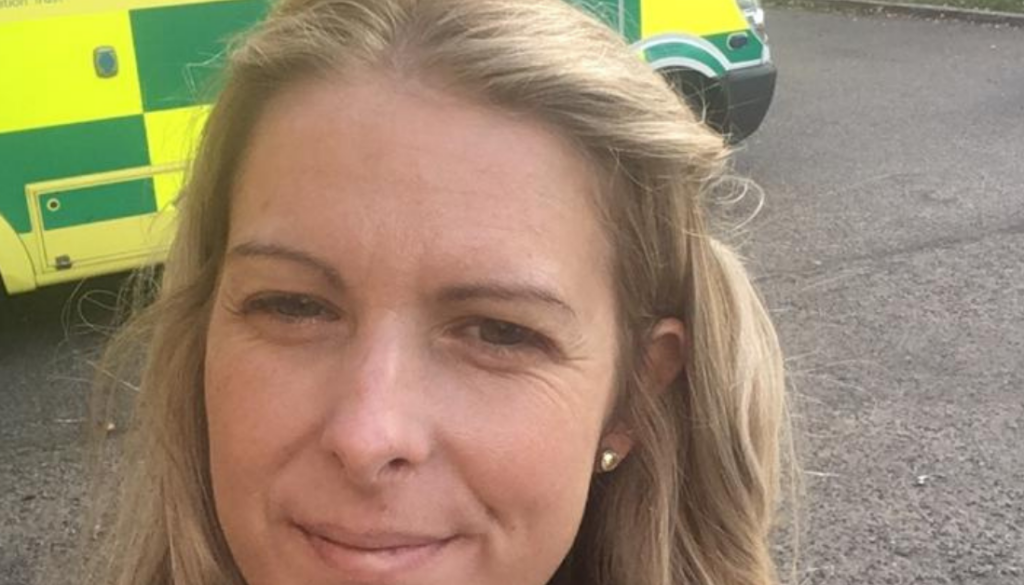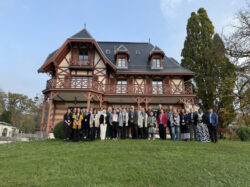A REAL Rare Rollercoaster – from Paramedic to Patient
All aboard this ride!
This week, on The Rare Disease Podcast 4 Medics, I had the honor to speak to a paramedic, turned patient. Marie was a practicing student paramedic when her symptoms arose seemingly out of nowhere and completely changed her life and course of her career forever. She described that it all began with an unrelenting cough that would not go away followed by a persistent stabbing chest pain that was unbearable.
With her education and training in healthcare and to the knowledge of the primary care providers that she sought care from, assuming that the pain was simply a muscular consequence of the unrelenting cough seemed perfectly plausible…at first. However, many months on, with no respite from the debilitating pain, nausea, unintentional weight loss and various investigations, including at least one misdiagnosis, Marie was diagnosed with Superior Mesenteric Artery Syndrome, otherwise known as Wilkie syndrome.
Receiving this diagnosis brought initial relief, yet the experience of receiving a diagnosis has been wrought with many “ups and downs” similar to a rollercoaster ride, in a metaphor Marie uses to describe her journey following diagnosis.
A diagnosis is often the end goal for patients with debilitating unexplained symptoms but often, it is the start of a new journey, a new set of challenges unwittingly ahead.
Marie

The ‘mechanics’ of the ride
Superior Mesenteric Artery Syndrome (SMAS) is a rare condition and very little is understood about its etiology. It is a condition that involves the small intestine and occurs when the duodenum (the part of the small intestine that connects to the stomach) becomes compressed between two arteries – the aorta and the superior mesenteric artery. This compression can result in partial or complete blockage and prevents food from traveling through the duodenum which can lead to a bowel obstruction causing pain, nausea, vomiting and eventually, weight loss.
Delays in diagnosis can result in significant complications and symptoms may not resolve completely following treatment. The onset of the condition usually occurs following loss of the mesenteric fat pad around the artery which can be preceded by a different medical condition, significant weight loss, congenital predisposition and in some cases corrective spinal surgery.
Marie went on to develop Renal Nutcracker Syndrome, which she describes as a secondary rare condition that goes hand-in-hand with SMAS. Renal Nutcracker Syndrome occurs when the left renal vein (the vein carrying purified blood from the left kidney) becomes compressed between two arteries (the abdominal aorta and the superior mesenteric artery) resulting in intermittent severe and persistent symptoms of hematuria (blood in the urine), flank and abdominal pain. Treatment includes surveillance and/or surgery or kidney transplant.
Can I exit this ride please?
Marie explained that no matter how much you wish you could wake up and get off the roller coaster ride, you can’t and the pain continues and so does the rest of life’s demands. Emphasizing the importance of having coordinated care and a multi-disciplinary team that can offer holistic patient centered care, she reflects on the effects that her diagnosis has had on the wider family. All of a sudden, her partner and young children had an additional role as a caretaker. Being diagnosed with a rare disease can be compared to experiencing a loss. Marie describes that as part of the grieving process, you’re grieving the person you once were and those around you are simultaneously adjusting to a new role and grieving the role that you once fulfilled in the household. Coordinated care within a multidisciplinary team serves to take this into account and can provide patients and their family members with access to wider support resources, unique to the patient’s circumstances and needs.
Marie reflected how her road to diagnosis has given her newfound empathy and diagnostic curiosity for patients with unexplained pain symptoms. She witnessed first-hand how overnight she became a patient, a patient who she, along with everyone else in the medical community, no matter their role, found frustrating due to her unexplained persistent symptoms. She attributes her determination in finding an answer as one of the reasons for reaching her diagnosis. Increased awareness of the condition can serve to shorten this time sensitive diagnostic odyssey.
Much like Marie’s story, Rebecca’s harrowing story of being undiagnosed and in excruciating pain for 16 months before undergoing an emergency operation to save her life serves as a poignant reminder of the importance of listening to a patient, not delaying diagnostic procedures and of course, to #DareToThinkRare. This can be the difference between the life or death of a patient.
I am absolutely determined to raise awareness of this condition as much as possible, as only 0.013% of the worldwide population have been diagnosed with Superior Mesenteric Artery syndrome (SMAS). SMAS is intermittent and can take a long time to be diagnosed and unfortunately, the mortality rate is very high when misdiagnosed as irritable bowel syndrome or an eating disorder, as the symptoms are similar.
Rebecca Bostock
Hanging on for dear life!
Patients do not exist in isolation of other facets of their lives. Patients like Marie and Rebecca have roles other than simply being ‘the patient’ outside of the consultation room. Marie described the frustration felt when tears in a consultation are met with the immediate assumption that she must be depressed or not coping at all with the diagnosis. Yet, when you are a daughter, a friend, a spouse, an employee and a mother-you have to be strong in every other space. A consultation where you are the patient, should be the one space where it is acceptable and understandable if perhaps you are not the strongest person in the room. Whilst mental health should always be a consideration, sometimes when a patient is tearful in a consultation, it may just be that truthfully, what they are dealing with is hard and that they have been strong elsewhere for too long.
I would like to see someone who is going through this pain who has never felt low. I don’t want you to fix me. I just want you to listen.
Marie
A diagnosis does not signal the cessation of symptoms or pain. Symptoms can also present differently in different patients and in severity depending on each patients’ unique circumstances.
I had an emergency operation called a duodenojejunostomy, this is where my superior mesenteric artery was cut away and re-routed so that it won’t be compressed any more but shortly after the surgery, my symptoms returned. I struggle with my mobility as any excess movement or pressure on my stomach causes my symptoms which can last for a few days. I am bed bound. I also haven’t been able to move forward from the liquid diet.
Rebecca
The “Ups” and the “Downs” of this beautiful life
Marie is upbeat in talking through her reflections of her rare rollercoaster experience and jokes that she may perhaps write a book or two in the future about all the highs and lows along the way. Despite all the challenges that Marie has faced along the way, she is the mother to two beautiful children and at present, is working as a lecturer in Paramedic Science in the Department of Psychology, Health and Professional Development at Oxford Brookes University. Speaking with Marie in our latest podcast episode, I am inspired by her strength as an individual and as a mother but I am also in awe of the empathy that she has for patients and clinicians alike. She is now using her clinical expertise along with her personal lived experience to teach future healthcare providers the importance of obtaining an accurate and in-depth medical history as well as teaching them the importance of actively listening to their patients.
When something is rare, it does not mean that it is not real.
Marie
When patients are told that they have a rare condition, they can often be left feeling unheard, which further impedes their access to quality care. When symptoms are hard to define, it does not mean that it is not real. M4RD encourages all healthcare trainees and providers to #DareToThinkRare and to remember Marie’s words, that rare is real.

You can also read Rebecca’s full story here and here
Sources
Rarediseases.info.nih.gov. 2022. Renal nutcracker syndrome | Genetic and Rare Diseases Information Center (GARD) – an NCATS Program. [online] Available at: https://rarediseases.info.nih.gov/diseases/11971/renal-nutcracker-syndrome#:~:text=Renal%20nutcracker%20syndrome%20(NCS)%20is,develop%20severe%20and%20persistent%20symptoms. [Accessed 27 April 2022].
Rarediseases.info.nih.gov. 2022. Superior mesenteric artery syndrome | Genetic and Rare Diseases Information Center (GARD) – an NCATS Program. [online] Available at: https://rarediseases.info.nih.gov/diseases/7712/superior-mesenteric-artery-syndrome#:~:text=Summary&text=Superior%20mesenteric%20artery%20syndrome%20(SMAS,complete%20blockage%20of%20the%20duodenum. [Accessed 27 April 2022].
Rarediseases.info.nih.gov. 2022. Superior mesenteric artery syndrome | Genetic and Rare Diseases Information Center (GARD) – an NCATS Program. [online] Available at: https://rarediseases.info.nih.gov/diseases/7712/superior-mesenteric-artery-syndrome#:~:text=Summary&text=Superior%20mesenteric%20artery%20syndrome%20(SMAS,complete%20blockage%20of%20the%20duodenum. [Accessed 27 April 2022].




